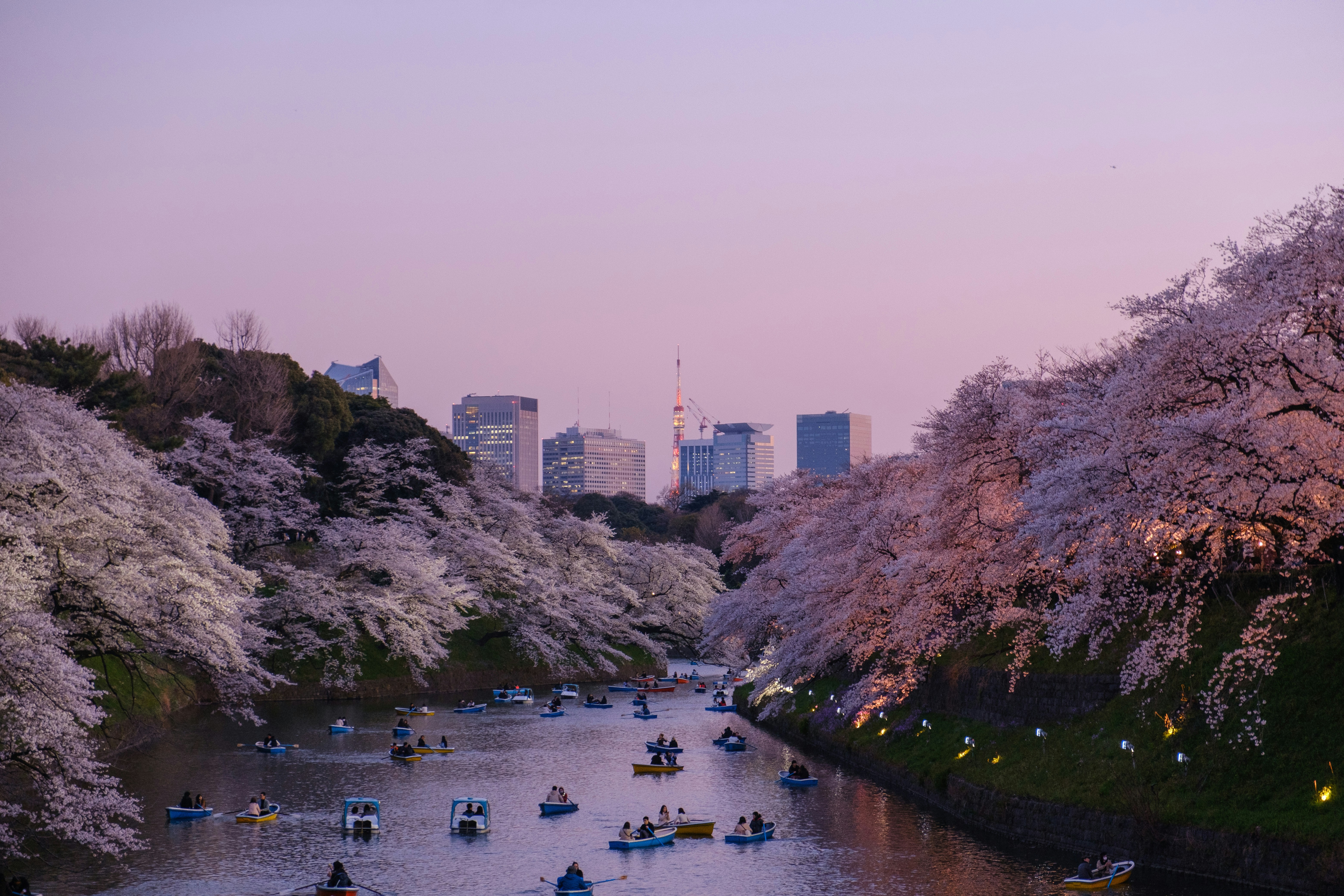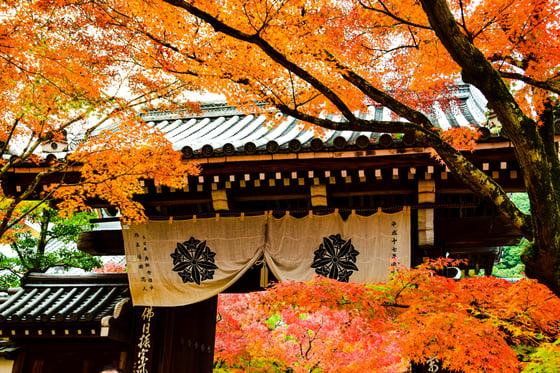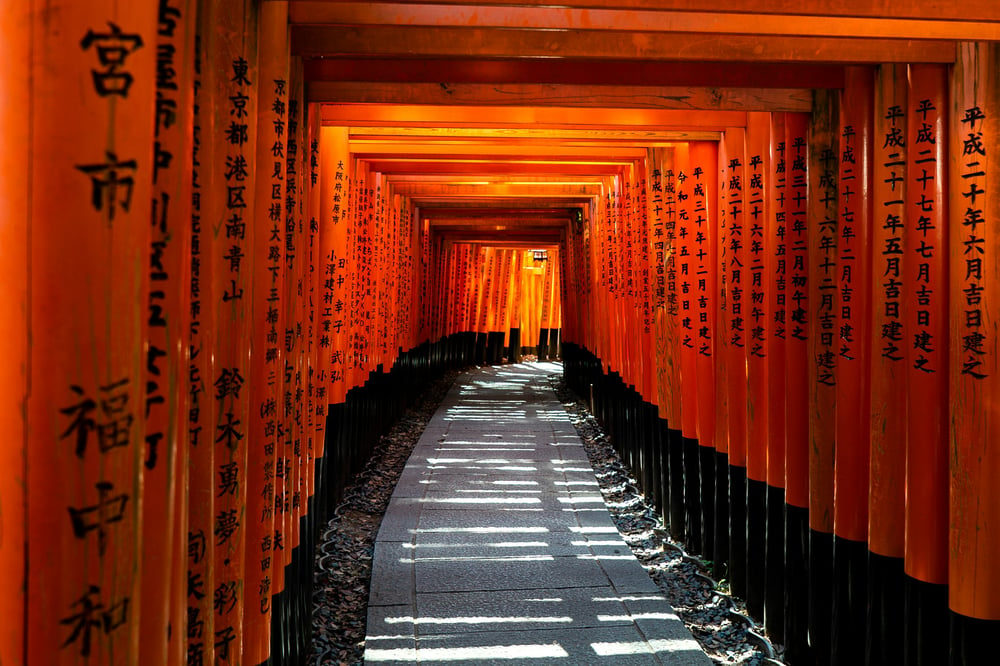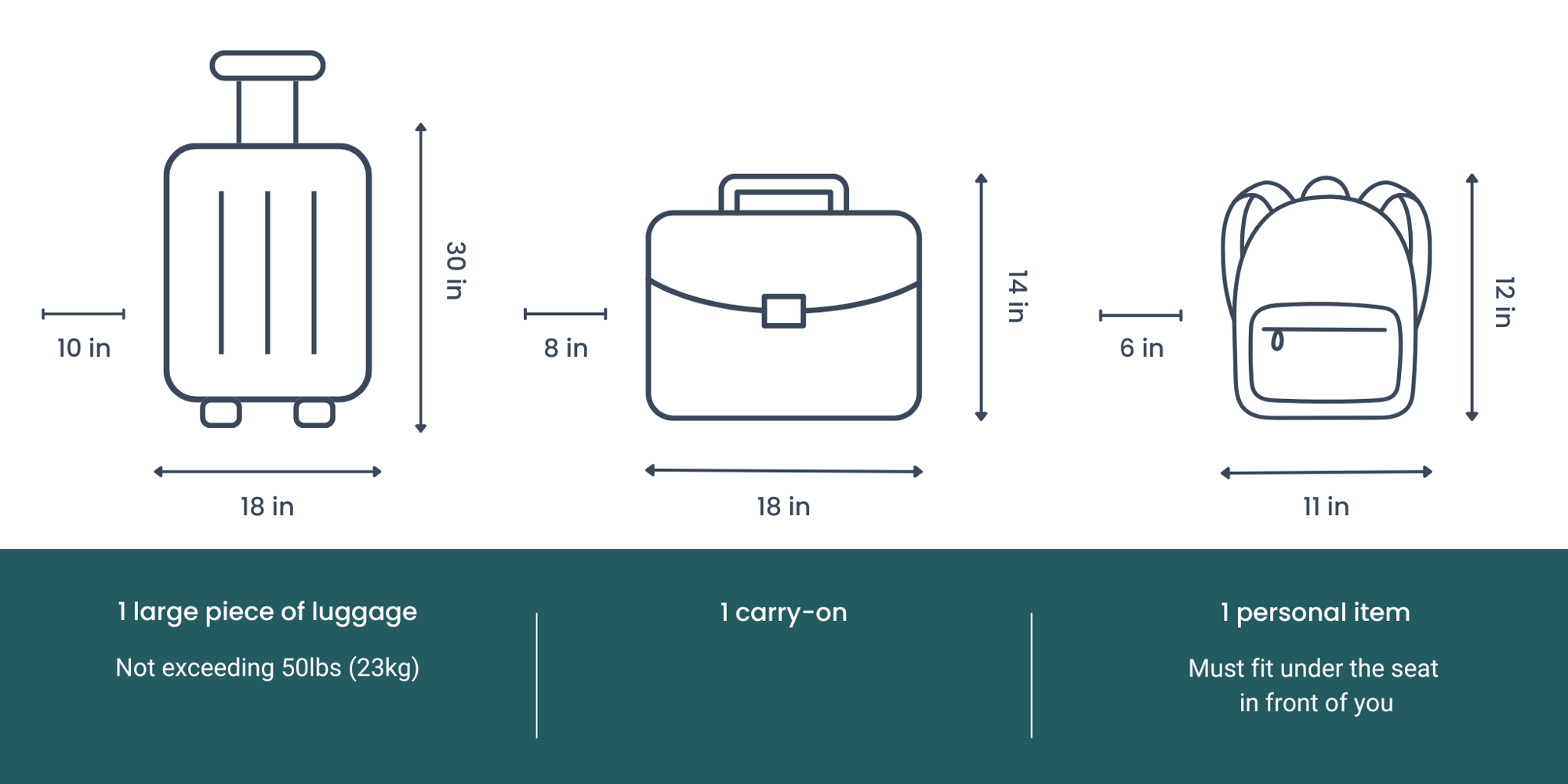Japan Destination Guide
Welcome to your adventure! This essential guide will help you prepare for an unforgettable journey through the Land of the Rising Sun.
.jpg)


Essential Travel Information for Japan
Everything you need to know before your Japan adventure
Visa & Entry Requirements
- Visa-Free Travel: Most travelers from the USA, UK, Canada, Australia, and the EU can enter visa-free for up to 90 days.
- Passport Validity: Must be valid for the duration of your stay.
- Return Ticket: Proof of onward/return travel may be required.
- Health Requirements: Check current vaccination and entry requirements before departure.
Currency & Payments
- Japanese Yen (JPY) is the official currency.
- Cash Society: Japan still relies heavily on cash, especially in smaller shops. Always carry some yen and a mix of note sizes.
- ATMs: Look for ATMs at 7-Eleven and post offices for foreign card withdrawals.
- Credit Cards: Major hotels and department stores accept credit cards, but smaller establishments often don't.
- Tipping: Not customary in Japan and can even be considered rude. Instead, show gratitude with a bow or a polite phrase (e.g., “gochisosama deshita” after a meal).
Mobile & Internet
- WiFi: Free WiFi available in major cities, hotels, and many cafés.
- Pocket WiFi: Consider renting a pocket WiFi device for constant connectivity.
- SIM Cards: Tourist SIMs are available at airports and electronic stores.
- Power: Japan uses Type A and B plugs (100V), two-pin outlets (same shape as US plugs, but not polarized). A voltage converter may be needed for some electronics.
- Telephone: Hotels have international call services, but this is expensive. It is best to use Wi-Fi apps such as WhatsApp, etc.
Time Zone
- Japan Standard Time (JST) – UTC +9
- Japan is 14 hours ahead of U.S. Eastern Time (when EST is in effect).
- Japan does not observe daylight saving time.
Climate & Weather
- Four Distinct Seasons: Spring (cherry blossoms), Summer (hot & humid), Autumn (colorful foliage), Winter (cold with snow in northern regions).
- Rainy Season: Early June to mid-July.
- Typhoon Season: August to October.
- Pack According to Season: Check weather forecasts before your trip.
Emergency Contacts
- Emergency Services: 📞 110 (Police), 📞 119 (Fire, Ambulance), 📞 118 (Coast Guard)
- Japan Visitor Hotline: 📞 050-3816-2787 (Available 24/7 in English)
- U.S. Embassy Tokyo: 📞 +81-3-3224-5000
- UK Embassy Tokyo: 📞 +81-3-5211-1100
- Australian Embassy Tokyo: 📞 +81-3-5232-4111
Packing Checklist for Japan
Use this checklist to ensure you pack everything you need for your Japan adventure
Travel Documents & Essentials
- Passport (valid for the duration of stay)
- Flight itinerary & proof of onward travel
- Travel insurance details
- Credit/debit cards
- Cash in Japanese Yen
- Copy of important documents (separate from originals)
- International driver's license (if planning to drive)
- Address of accommodations (written in Japanese if possible)
Clothing & Accessories
- Weather-appropriate clothing (check forecast)
- Comfortable walking shoes (you'll walk a lot!)
- Socks (to wear when removing shoes at temples/homes)
- Conservative clothing for temples & shrines
- Light jacket or sweater (for air conditioning)
- Umbrella or rain jacket
- Swimwear (for onsen towns, bring suitable swimwear)
- Slip-on shoes (for easy removal at temples/restaurants)
- Waterproof boots or shoes (for snowy cities)
Health & Toiletries
- Prescription medications (in original packaging)
- Basic first-aid supplies
- Hand sanitizer
- Face masks (commonly worn when sick in Japan)
- Deodorant (can be hard to find in Japan)
- Toothbrush & toothpaste
- Sunscreen
- Insect repellent (for summer months)
Electronics & Gadgets
- Power adapter (Japan uses Type A/B plugs)
- Camera & memory cards
- Smartphone & charger
- Portable charger/power bank
- Headphones
- Pocket WiFi device or SIM card (pre-ordered)
- Voltage converter (Japan uses 100V)
- Translation app or pocket dictionary
Packing Tips
- Pack Light: Many accommodations in Japan are compact. Consider luggage size.
- Luggage Forwarding: Japan has excellent luggage forwarding services (takuhaibin) for traveling between cities.
- Bring Comfortable Shoes: You'll walk much more than expected.
- Tattoo Cover-ups: If you have visible tattoos, bring cover-ups for onsen (tattoos are often restricted).
Top Destinations & Experiences for Japan
Discover the incredible places to visit during your Japan adventure

Tokyo
Japan's bustling capital blends ultramodern skyscrapers with historic temples and a vibrant pop culture scene.
Must-See Attractions:
- Shibuya Crossing – Experience the world's busiest pedestrian crossing.
- Senso-ji Temple – Tokyo's oldest and most significant Buddhist temple.
- Meiji Shrine – Serene forest shrine dedicated to Emperor Meiji.
- Tokyo Skytree – One of the world's tallest towers with panoramic views.
- Tsukiji Outer Market – Sample fresh seafood and Japanese delicacies.
Kyoto
Japan's cultural heart is with over 1,600 Buddhist temples, 400 Shinto shrines, and beautifully preserved districts.
Kyoto Highlights:
- Fushimi Inari Shrine – Famous for its thousands of vermilion torii gates.
- Kinkaku-ji (Golden Pavilion) – Stunning Zen temple covered in gold leaf.
- Arashiyama Bamboo Grove – Otherworldly bamboo forest path.
- Gion District – Historic geisha district with preserved wooden machiya houses.
- Kiyomizu-dera Temple – Offers panoramic views of the city.


Mount Fuji & Hakone
Japan's iconic volcano and the surrounding hot spring region offer natural beauty and relaxation.
Area Highlights:
- Mount Fuji Climbing – The Official climbing season is July to early September.
- Lake Kawaguchiko – Offers spectacular views of Mt. Fuji.
- Hakone Open Air Museum – Outdoor art museum with stunning sculptures.
- Owakudani – Volcanic valley with hot springs and black eggs.
- Onsen Experience – Relax in natural hot springs with views of Mt. Fuji.
Must-Try Japanese Foods
Japan is a food lover's paradise with regional specialties and an incredible variety. Here are some dishes you shouldn't miss:
Sushi
Fresh raw fish over vinegared rice, best enjoyed at a counter with skilled chefs.
Ramen
Hearty noodle soup with regional variations of broth, toppings, and noodle types.
Wagyu Beef
Famous marbled beef, often served as yakiniku (grilled meat) or in shabu-shabu.
Bento
Beautifully arranged boxed meals are available at stores, stations, and restaurants.
Yakitori
Skewered grilled chicken, perfect with a cold beer at an izakaya (pub).
Matcha
Powdered green tea is found in traditional ceremonies and modern desserts alike.
Local Culture & Responsible Travel
Tips for respectful travel and cultural awareness during your Japan adventure
Cultural Etiquette
- Bowing: The common greeting in Japan. A slight bow is sufficient for tourists.
- Shoes Off: Remove shoes before entering homes, ryokans, traditional restaurants, and some temples.
- Onsen Etiquette: Wash thoroughly before entering hot springs, no swimwear allowed, and no photos.
- Quiet Voice: Keep your voice down in public, especially on trains.
- Chopsticks: Never stick them vertically into rice (funeral association) or pass food from chopstick to chopstick.
- Religion: Most Japanese practice both Shinto and Buddhism, often for different life events.
- Trains: Expect punctuality to the minute — it’s considered impolite to hold doors or delay departures.
Responsible Tourism
- Respect Geisha: Don't chase or photograph maiko/geiko without permission in Kyoto.
- Waste Management: Public trash cans are rare; carry your garbage until you find one.
- Recycling: Japan has strict recycling rules. Follow signs and separate accordingly.
- Photo Etiquette: Always ask permission before photographing people.
- Alcohol: Legal drinking age is 20.
- Smoking: Only smoke in designated areas; smoking while walking is often prohibited. Also, age 20+. Fines apply for littering butts.
- Sacred Sites: At temples and shrines, bow once before entering, avoid loud conversation, and don’t photograph altars without permission. Follow the posted rules at temples and shrines.
⚠️ Important Safety Note
- Japan has strict drug laws with severe penalties. Medicines containing stimulants or codeine may be illegal in Japan. Always check if your prescription medications are allowed before traveling.
- Japan is very safe, with low crime. Still, keep valuables close in crowded places.
Sumo Stable Visits
- Remain quiet and respectful during the entire visit.
- Remove shoes, sit cross-legged, and never point feet at the ring.
- No eating, drinking, or loud photography during the session.
- Stay for the full session as a sign of respect.
Social Customs
- Chopstick Etiquette: Do not stick chopsticks upright in rice or pass food chopstick-to-chopstick.
- Footwear: Remove shoes in homes, temples, some restaurants/hospitals.
- Greetings: Bowing is common; as a foreigner, a nod or handshake is fine.
- Cash Usage: Japan is still cash-based—carry yen even if some places take cards.
- Language: English isn’t widely spoken outside major cities, but locals are patient and helpful. Learn basic phrases like “Arigato” (thank you) and “Sumimasen” (excuse me).
- Business Closures: Many cultural sites, museums, and smaller restaurants are closed on Mondays.
🧳 Additional Travel Tips
- Japan Rail Pass: Purchase before arriving in Japan if you plan to travel extensively.
- IC Cards: Suica or Pasmo cards make using public transit convenient.
- Tax-Free Shopping: Look for "Tax-Free" signs in shops (passport required).
- Convenience Stores: 7-Eleven, Lawson, and Family Mart are incredibly useful for ATMs, meals, and essentials.
- Google Maps: Excellent for navigating Japan's transit systems.
- Learn Basic Phrases: A few Japanese words go a long way in showing respect.
🚅 Transportation
- Public Transportation: Japan's public transport is clean, punctual, and extremely efficient. You will frequently use public transport, especially in Tokyo. A pre-loaded PASMO/SUICA card will be provided for your fare.
- Trains: Bullet trains may require separate luggage shipping.
- Ride-sharing: Uber is available but not widely used due to excellent public transit. Didi (Chinese app) is also available in some areas.
- Driving: Japan drives on the left; roads are narrow and parking is limited.
- Taxis: Drivers rarely speak English; show them your hotel’s business card with the address in Japanese.
- Flights: Need help searching for a flight? We recommend Skyscanner.com to compare different routes and rates. Click here to search!
💧 Essentials
- Water: Tap water is safe and drinkable. Public restrooms, parks, and train stations often have free fountains. Bottled water is widely available in convenience stores.
- Laundry: Most hotels offer laundry; ryokan usually do not. Coin laundromats are common in city neighborhoods.
- Earthquakes: Minor tremors occur frequently; follow local instructions calmly and note hotel emergency exits on check-in.
- Shopping: Department stores in Tokyo/Osaka for tech & fashion; smaller towns for authentic handicrafts.
- Street Stalls (Shoutengai): For souvenirs, food, and handmade goods, visit these pedestrian-only shopping streets or wet markets.
🗣️ Useful Japanese Phrases
- Good morning: Kon'nichiwa
- Good night: Oyasumi
- Thank you: Arigato
- I'm sorry: Gomen'nasai
- Delicious: Oishi
Tipping
Tips for guides, drivers, and restaurants are not included. Tips provide supplemental income, and, while not mandatory, are greatly appreciated. If the local teams have added to the experience, please reward them.
| Private dinner w/ Geisha | 3000 yen paid at the beginning of dinner | |
| Guides | 500 yen per day, at the end, in an envelope | |
| Ryokan with private Nakai-san | 1000 yen paid in an envelope at check-in (Japanese-style hotel with staff that take care of guests) |
Luggage Restrictions

